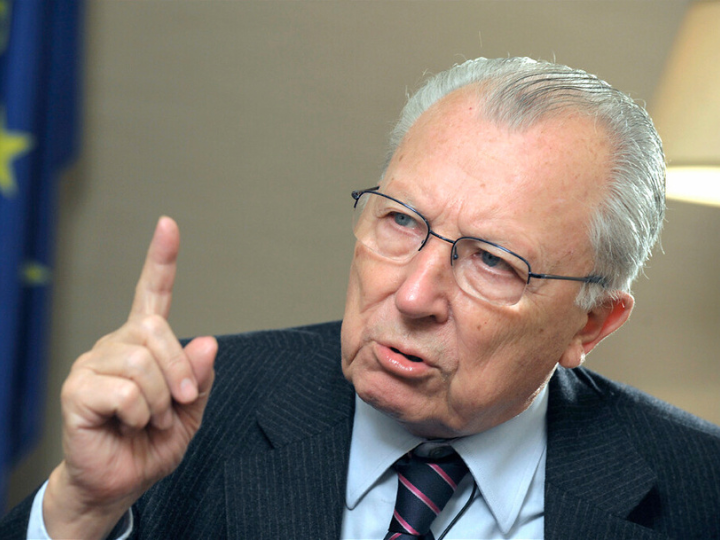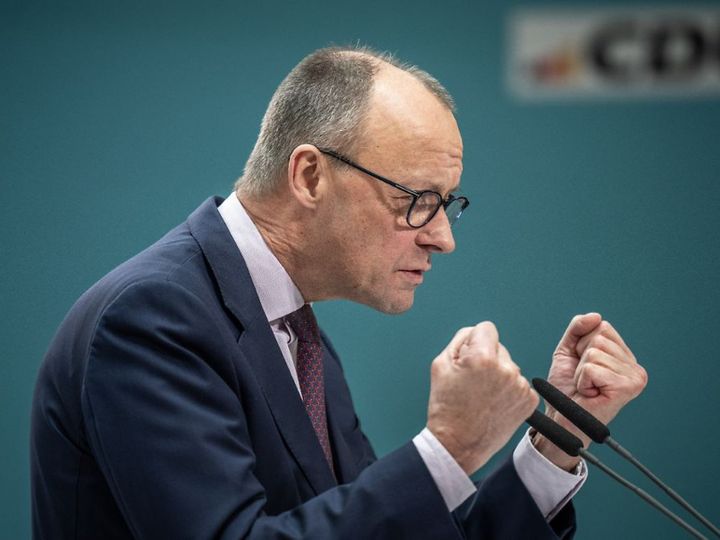by Giles Merritt
The European Commission’s collective memory is woefully short. It doesn’t even stretch back 40 years to the time when Brussels famously slew the dragon of ‘euroscepticism’ with well-prepared single market reforms that member governments had long resisted.
Governments had paid lip service to them, but little else. When Jacques Delors won rave plaudits in 1985 for his single market plan, he knew he needed much more to get it over the line.
Ursula von der Leyen got a similarly enthusiastic reception last year when presenting twin EU initiatives based on competitiveness reports by former Italian premiers Enrico Letta and Mario Draghi. But as with Delors, once the applause had died down, the initiative began to stumble. Unlike her predecessor at the head of the Commission, she has no clear action plan to turn the proposals into reality.
Mario Draghi has lately stressed the need for urgency, warning that at the present rate of progress, some of his suggested policies will be outdated before they are adopted.
Delors’ drive to abolish national barriers and streamline intra-European trade revitalised a European integration project becalmed in the doldrums since the 1970s. To ensure most of his 300 measures would get onto member states’ statute books by his 1992 deadline, he took a British-inspired ‘pragmatic’ approach. Its centrepiece was a critical path juggling different national parliamentary timetables. Delors also unhesitatingly named and shamed laggard governments.
No such plan was prepared by von der Leyen’s Commission. That became painfully clear this autumn when an audit of Draghi’s 383 recommendations found that only a tenth to have been acted on, with a further fifth in line for ‘partial’ implementation. Not only had the Brussels executive apparently failed to prepare an action plan in advance of the two reports it had itself initiated, it still has no clear roadmap for them.
Speed is always a problem because of the EU’s complexity. But it was obvious from the inception of both studies that ways had to be found to accelerate procedures and confront foot-dragging governments and business lobbies.
Draghi has lately stressed the need for urgency, warning that at the present rate of progress, some of his suggested policies will be outdated before they are adopted. Ursula von der Leyen, meanwhile, has assured the European Parliament “we’ve responded fast and forcefully”.
It would be unfair to place all the blame on the European Commission. Member governments are always prime suspects when EU plans go awry. While the European Council as a body can be relied upon for massive collective support of innovation and growth initiatives, individual governments then quietly ignore their commitments.
President von der Leyen no longer has anything to lose politically, and much to gain for Europe by emulating Jacques Delors.
Last year, hard on the heels of the Draghi and Letta reports, 20 EU member governments signed up to a non-paper giving their recommendations full support. The seven refuseniks included France, Spain and Italy – the powerhouses of the EU’s ‘Club Med’ – though not Germany or Poland.
The backing from Big Business that was crucially important to Delors’ streamlining has been less evident this time. In the 1980s, the European Round Table of Industrialists (ERT) worked hard to overcome the protectionist instincts of national industries, giving vital impetus to the single market reforms. Its then chief, Wisse Dekker, CEO of Philips, was a high-profile champion of the 1992 plan. Although the ERT unhesitatingly endorsed the Draghi and Letta proposals, its membership of powerful industrialists has yet to generate comparable headlines and public interest.
It may be that beneath the surface heartening progress is being made, and if so this should be communicated more effectively. It’s vital to grab public attention as the proposed competitiveness measures will determine living standards in Europe for the whole of this century. From combining capital markets to boost investment to ending the no-risk culture that has starved innovative start-ups and blue sky research, these EU measures are a make-or-break moment.
Nor are they as daunting as this might suggest. Half involve no extra funding by governments, so in many cases the sticking point is political reticence. Most European governments are currently wrestling with intractable budget crises created by almost two decades of sluggish economic growth. Their only defence against tough competition from Asia and America is unity. The EU’s leadership in rule-making has much value, but it has eclipsed the common approach to manufacturing, research, borrowing and investment that was the strategic goal of the Delors years.
Although only a year into her second term, Ursula von der Leyen will inevitably become a lame duck long before 2029. She is, however, particularly well placed to quack loudly.
Brussels eurocrats instinctively opt to reassure public opinion. But their line that all is well on any contentious issue has long been a fatal error. President von der Leyen no longer has anything to lose politically, and much to gain for Europe by emulating Jacques Delors. She should launch her own no-holds-barred attack on member states’ inertia and perceived self-interest.
*The views expressed in this op-ed reflect those of the author and not of Friends of Europe.
**Published first on friendsofeurope.org




 By: N. Peter Kramer
By: N. Peter Kramer
